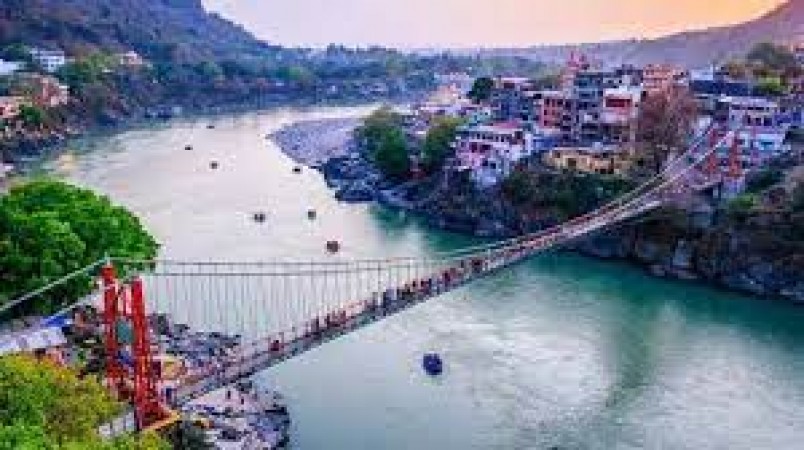
Laxman Jhula, a renowned suspension bridge in the holy town of Rishikesh, India, is a symbol of both spiritual significance and natural beauty. Spanning the River Ganges, this architectural marvel attracts pilgrims, tourists, and seekers of tranquility from all over the world. Laxman Jhula stands as a captivating symbol of Rishikesh's spiritual heritage and natural beauty. The bridge's connection to Hindu mythology and its breathtaking views of the Ganges and the surrounding landscape draw visitors seeking spiritual solace, cultural immersion, and adventure experiences. As one of India's most cherished landmarks, Laxman Jhula continues to captivate the hearts of those who cross it, leaving them with an indelible impression of this remarkable fusion of spirituality and nature.
Laxman Jhula, believed to have been constructed in the early 20th century, is named after Lord Rama's brother, Laxman, from the epic Ramayana. According to Hindu mythology, it is believed that Laxman once crossed the River Ganges at the same location where the bridge stands today. Before the bridge's existence, people would use a jute rope to cross the river, and the present suspension bridge has replaced that older method. Laxman Jhula is a 450-feet long and 70-feet high suspension bridge, making it an impressive feat of engineering. The bridge is constructed using iron cables and girders and provides breathtaking views of the Ganges, the surrounding hills, and the nearby temples. Adorned with intricate design elements, the bridge is a fusion of traditional Indian architecture and modern engineering. It connects the town of Tapovan in the Tehri Garhwal district on the west bank of the Ganges with Jonk in the Pauri Garhwal district on the east bank.
Rishikesh, the "Yoga Capital of the World," holds immense religious and spiritual importance in Hinduism. The presence of Laxman Jhula on the sacred Ganges River enhances the town's spiritual ambiance. For the devout, crossing the bridge is considered a pilgrimage in itself. Many believe that a visit to Laxman Jhula and Rishikesh helps cleanse the soul and brings one closer to attaining moksha (liberation from the cycle of birth and death). The bridge is also associated with the holy Char Dham Yatra, a pilgrimage to four sacred Hindu sites in the Indian Himalayas. Beyond its spiritual significance, Laxman Jhula is a popular tourist destination. Travelers from around the globe visit Rishikesh to experience its serene atmosphere, practice yoga and meditation, and indulge in adventure activities. Walking on the bridge offers an unparalleled experience, allowing visitors to witness the breathtaking panorama of the Ganges and the surrounding lush greenery. Additionally, the bridge is lined with various shops selling religious items, handicrafts, and souvenirs, making it an ideal place for souvenir hunting. Rishikesh is also known for its adrenaline-pumping adventure sports. Visitors can engage in activities such as white-water rafting, bungee jumping, zip-lining, and trekking, making it a favorite destination for thrill-seekers and nature enthusiasts alike.
Also read – Balarama: The Strength and Support of Lord Krishna